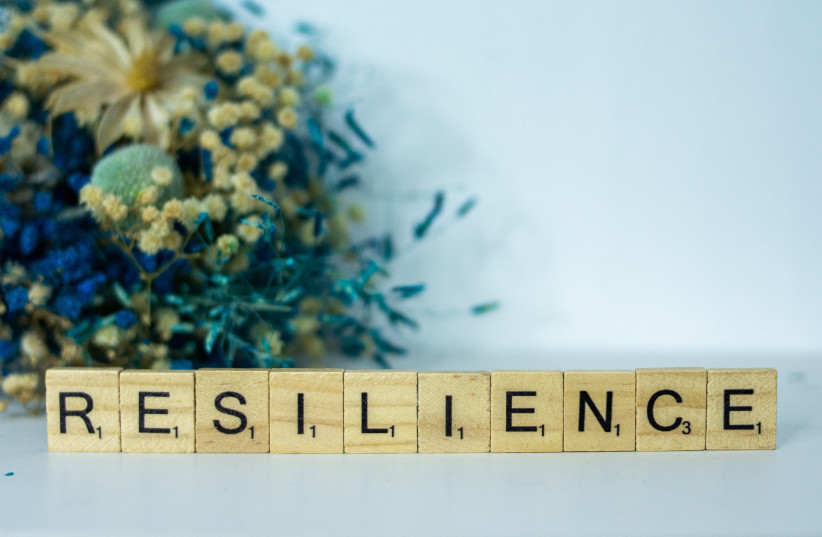Two weeks seem like an eternity.
On that Shabbat, four of my children rushed out of synagogue to defend Israelis from unbridled slaughter. Within a day or two the massacre of men, women, and children ceased, not because the killers had reached a level of blood satiation, but because other men and women raced to prevent further bloodshed.
Since then, we have basically been waiting.
The barbarous enemy places itself in the midst of population centers in Gaza. We have pleaded with them to allow their citizens to leave the war area. The barbarians have refused. They understand that innocents may serve as human shields and prevent forces representing civilization from advancing.
So, we are waiting and grappling with an insoluble dilemma.

As long as the enemy refuses to allow citizens to retreat, and continues to hold hostages, many of them preschoolers, the bombing of Hamas by Israeli forces will likely, tragically, result in thousands of civilian deaths.
On the other hand, entering an urban, densely populated environment may result in the deaths of thousands of our young soldiers.
This gruesome decision is one that will be made by our political leaders. Time will tell.
What are the millions of regular citizens caught in both Israel and Gaza supposed to do?
Psychological research led by Israeli psychologist Prof. Muli Lahad, indicates that there are seven channels of activities that bolster resilience under extreme circumstances.
The Hebrew acronym for these activities is gesher me’ached, which means “unified bridge.”
Certainly, after a year that highlighted schisms within Israeli society, the unified bridge concept appears both necessary and pertinent.
The seven domains of resilience-building activity are represented by the Hebrew letters: gimmel, shin, resh, mem, alef, het, nun.
Gimmel, the third letter of the Hebrew alphabet represents guf, the body. Physical activity is extremely important in order to alleviate stress and anxiety. So, it becomes essential to move one’s body. If you are a walker, keep on walking. If you are a runner, run. Swimmers need to swim and bikers need to pedal. During this time of chaos, physical activity is essential.
Shin, stands for seichel, which means the wise mind. Analytic thinking is an essential tool for coping. Read, do crossword puzzles, write like I am doing now, or plan some future activity. If you find yourself getting trapped in circular thoughts that increase anxiety, acknowledge that you are stuck and do something to allow your brain to escape the obsessive-compulsive loop. Some take cold showers; others listen to music and sing loudly, or dance like crazy.
Alternate activities that are stimulating but not self-injurious either, are usually effective in halting torturous, obsessive-compulsive repetition.
Resh stands for regesh, emotion, or ruach, spirit. Engage in activities that lift your spirit. Listen to the music of your youth, eat a comfort food that you may not usually allow yourself, and/or act mindfully in a manner that enhances your personal sense of security.
Mem stands for mishpacha, which in Hebrew and Yiddish, means family. Family matters, and crises are times to let go of grudges and get together with what for many is our primary safety network, our family. Get together with those who have known you the longest. Usually, family provides a hub of love that is not found anywhere else. Of course, if your family of origin is blatantly toxic, then avoid it like the plague.
Alef stands for emunah which means faith. While the well-known expression, “there are no atheists in a foxhole,” is not in itself proof of the Divine, it reflects a human reality that activities that connect us with a Divine caretaker enhance our resilience. Prayer, religious study, recitation of Psalms, performance of good deeds, expressions of gratitude, and compassion all enhance our ability to withstand challenging realities.
Chet stands for chevra which means friends. Strengthening circles of friendship, meeting with friends, speaking or texting, and supporting each other are ways to empower ourselves as well as those around us.
Finally, dalet, stands for dimyon, which means imagination. Humans are equipped with the cognitive ability to imagine beyond the limits of actual physical reality. We can imagine ourselves relaxing on a deserted tropical paradise or as possessing super-powers. Imagination allows us to transcend physical space and time and hence is an important tool in coping with chaos.
It’s true that escape into imagination doesn’t last forever, but it allows us to recharge our battery and to return to our physical reality with greater strength.
As we wait for our leaders to find some sort of resolution, we must resist the tendency to fall into passivity.
The “unified bridge,” empowers us to overcome the waiting game and to create an island of control in a sea of chaos.
The writer is a clinical psychologist who has helped thousands cope with stress in war and times of peace. He served as a psychologist in the Israeli army for twenty-two years. He has recently published a book Kosher ADHD as a means of helping Jewish families cope with the challenges of Attention Deficit Hyperactivity Disorder.
